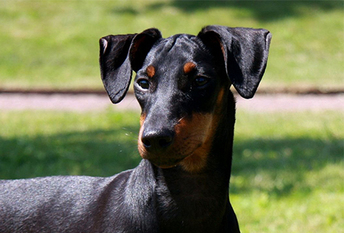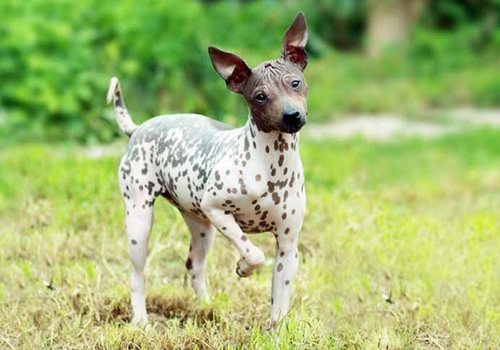Grooming needs ofAmerican Hairless Terrier are minimal. For the hairless variety, there is little maintenance involved other than keeping the ears clean and making sure the dog is protected from sunburn. The variety with a short, shiny coat is almost as carefree.
They hardly shed, so all that’s called for is a quick session with a soft bristle brush once a week, and an occasional bath as needed. As with all breeds, the American Hairless Terrier‘s nails should be trimmed regularly.
The American Hairless Terrier has only moderateexerciseneeds. They have to go outside several times a day, of course, but brief daily sessions in a fenced-in yard or on regular walks will generally be all they require.
They enjoy activity but are also quite happy to curl up on the couch next to their owner. The breed is friendly and happy to play with people or other dogs. Thanks to their high trainability, they can do well in a wide range of canine activities such asobedience,rally, andagilitycompetitions.
High-quality dog food is needed, whether commercially manufactured or home-prepared with your veterinarian’s supervision and approval. Any diet should be appropriate to the dog’s age (puppy, adult, or senior).
Some dogs are prone to gettingoverweight, so watch your dog’s calorie consumption and weight level.Treatscan be an important aid in training, but giving too many can cause obesity. Learn about whichhuman foodsare safe for dogs, and which are not. Check with your vet if you have any concerns about your dog’s weight or diet.Clean, fresh water should be available at all times.
Because the gene associated with the American Hairless Terrier’s lack of hair is recessive, they do not suffer from absent premolars or other breeding complications that plague other hairless dog breeds. They can, however, suffer from occasional cuts and bruises resulting from vigorous play.
As with all breeds, early socialization andpuppy training classesare recommended. Gently exposing the puppy to a wide variety of people, places, and situations between the ages of about 7 weeks and 4 months will help him develop into a well-adjusted, well-mannered adult.
Puppy training classes help owners learn how to recognize and avert any behavior problems and enhance the bond between the puppy and the owner. The American Hairless Terrier is very intelligent and eager to please, so training is usually an easy and enjoyable activity.












